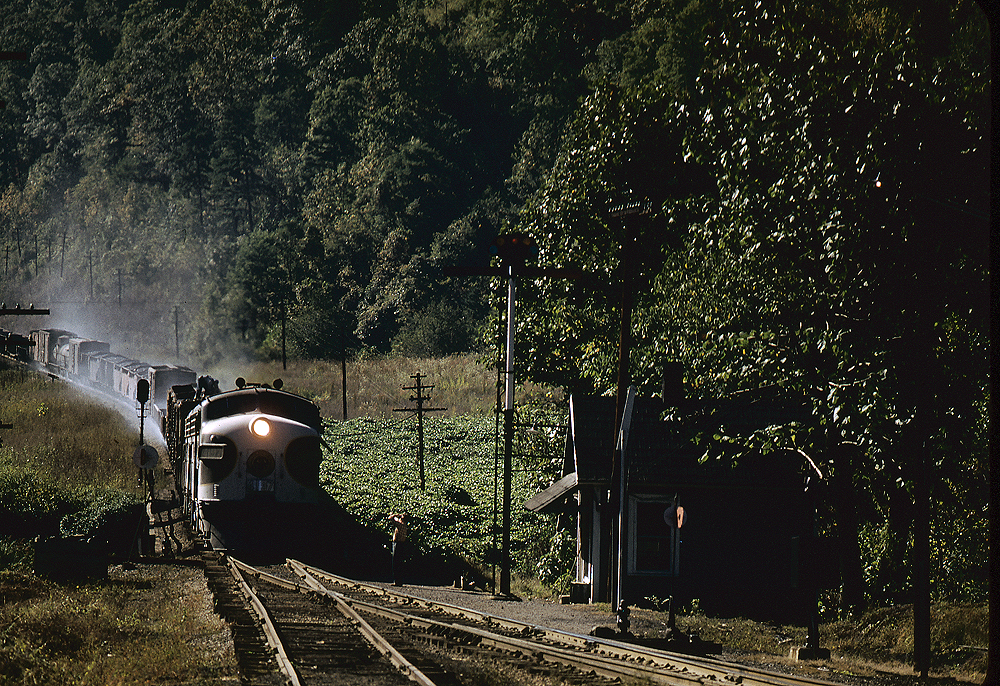
Being a safety supervisor at a small regional railroad entailed more than being a statistician. When promoted to the position on the Maine Central in early 1982, I was part of a two-man team, tasked with promoting safety. This required meeting train crews, riding with them, learning the rudiments of their tasks; talking with engineering and mechanical department crews; making worksite observations; listening to suggestions and getting back to people; training; and spreading the word that safety was (and still is) “of the first importance of duty” — the operational foundation of any railroad.
While many railroad safety officers spend much of their time filing accident reports, my job, in addition, was to reduce personal injuries and improve the safety of employees and the railroad. Accomplishing this was a formidable task, but not an impossible one. It involved getting out of the office, being seen, and listening.
I enjoyed going into the field. Of course, as an officer of the company, you weren’t supposed to like what you were doing — that was an unwritten rule. To like your job was thought to make you a railfan, a stigma to be avoided at all costs. But those in higher positions knew — you just couldn’t show it. Shortly after my promotion, my boss, the superintendent, came into the office I shared with the other supervisor and approached me. Smiling, he held out a small card, saying, “I’m sure you’ll make good use of this.” It was my Maine Central Railroad pass. As much as I enjoyed riding the lead locomotive, I found that there was serious work to be done making observations while getting to know the crews and their peculiarities.
The main feature was convincing employees in all crafts that safety — their safety — was important to the company, as well as their families. It also involved responding to accidents, doing investigations, and working with local emergency responders when derailments occurred. Crisis management was a part of the job, and one had to learn quickly. Fortunately, I had help from many others on the railroad.
Frequently the job involved hazardous materials, and every call made me wish I had paid greater attention to my high school chemistry teacher. Any time a car containing hazmat derailed the safety department became involved. One of my first experiences was in early May when a tank car of liquefied petroleum gas derailed near Twin Mountain, N.H. As it was morning, my more experienced partner said he’d go up and suggested I follow in the afternoon so he could go home. I was the low man on the seniority list, so I had no reason to object. It was a lovely day in Portland; the sun was out and it was a balmy afternoon in the high 70s as I drove north. By the time I arrived in the White Mountains (near the famed Mt. Washington Hotel), the temperature was hovering around 35 degrees and snowflakes were falling. I was wearing a short-sleeve shirt and a light jacket.
Lesson of the day: Have warm clothes in the trunk of your car. Although there was no spill or leak, I still had to babysit the scene until the car was back on the rails. By dusk, it was sent on its way.
As time passed, I encountered other situations that required more than babysitting. Spills and resulting fires were the worst. Hazmat incidents were never fun and each one presented different challenges. I always kept an Emergency Response Guide with me as a reference about how any hazmat class had to be managed.
One spill was unusual. Derailments and other incidents happened at all hours — usually at the most inconvenient time. One night after I had gone to bed, I received a phone call around midnight. No matter the hour, it required some quick thinking.
The caller was a friend and colleague, Emmons Lancaster, Maine Central’s assistant engineer of structures and designated environmental supervisor. Like many railroad people, “Lank” was blunt and bluff in manner, but possessed a warm heart. He was a good decent soul, a character in a positive way, straight out of Central Casting, but as it was late, he wasn’t in good spirits.
I answered the phone and sleepily said, “Hello.”
“We just dumped 10,000 gallons of fish oil in the Penobscot River. What do you want to do about it?”
“Hi, Lank. Uh … let’s see … fish oil?”
Fish were processed at a facility in Eastport, Maine, at the far end of Maine Central on the soon-to-be abandoned
Eastport Branch. Tank cars of fish oil were filled there and shipped to some other plant that used it in fertilizer.
“Why did we dump 10,000 gallons of fish oil in the Penobscot?” I asked.
Apparently, the spill occurred in Bangor Yard during switching moves. The cap on the bottom of the car wasn’t seated properly and came off, dumping the smelly fluid on the ground, into a sewer, and into the adjacent river.
“Let’s see,” I said groggily. “It’s not really hazardous, although the smell could start a stampede … [sleepy pause] … It’s only going back where it came from … [another sleepy pause] … Call the Coast Guard and ask if there’s anything we have to do.”
After hours, the Coast Guard is the official hazmat emergency responder.
A few minutes later Lank called back. “Coast Guard says that it’s only going back to where it came from. Good night!”
I went back to sleep.
A month later I visited Bangor to look in at the Mechanical Department’s car shop by the yard. The place reeked. Ten thousand gallons of fish oil: gone, but definitely not forgotten. All spills were bad, but this one smelled the worst.















